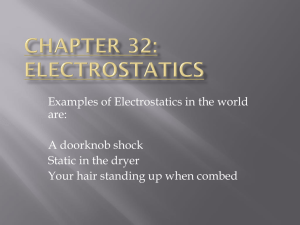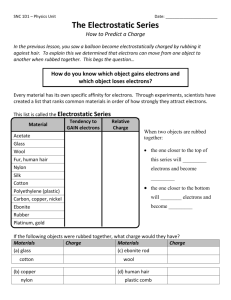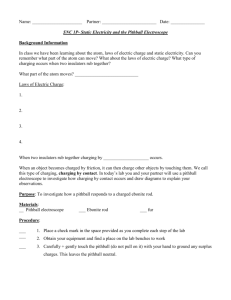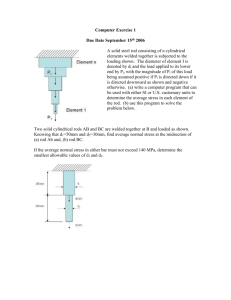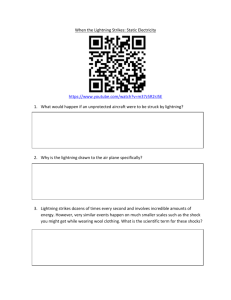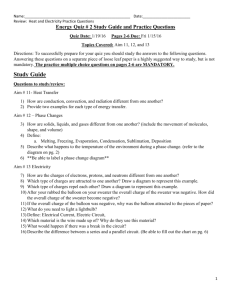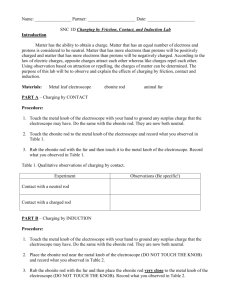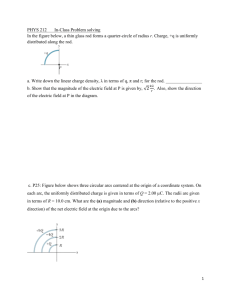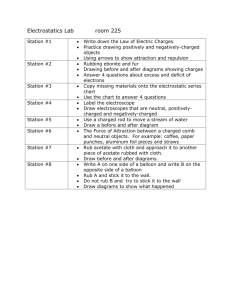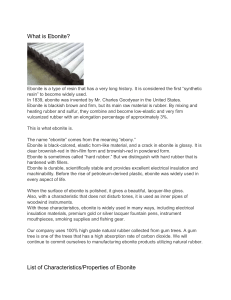Laws of Static Electricity
advertisement
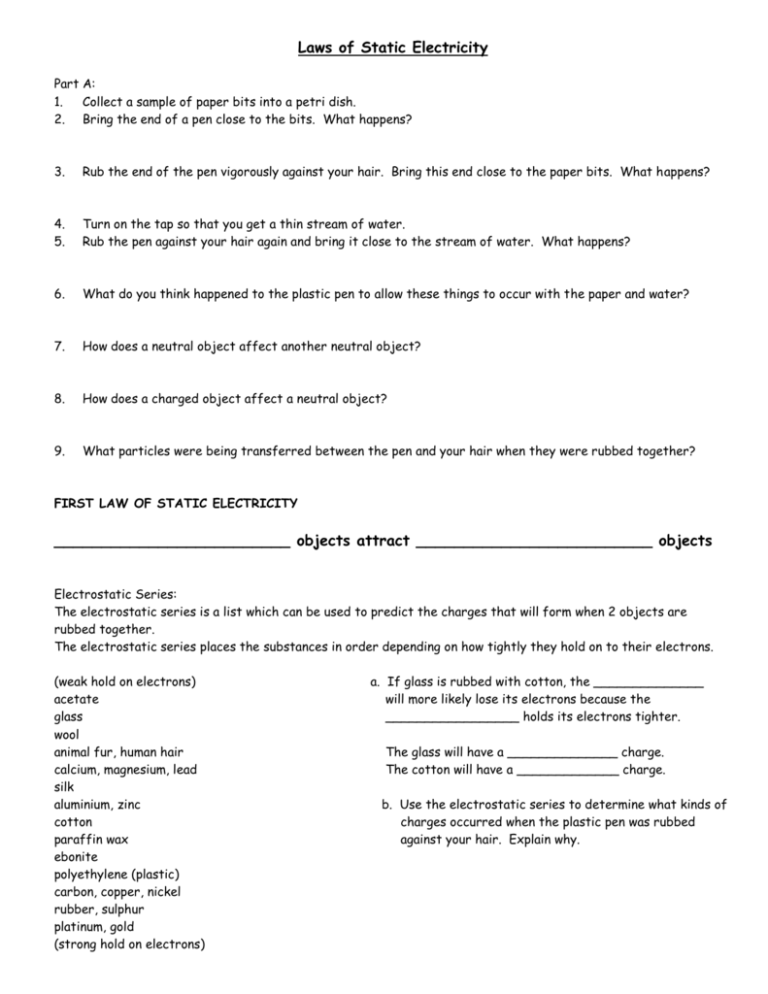
Laws of Static Electricity Part A: 1. Collect a sample of paper bits into a petri dish. 2. Bring the end of a pen close to the bits. What happens? 3. Rub the end of the pen vigorously against your hair. Bring this end close to the paper bits. What happens? 4. 5. Turn on the tap so that you get a thin stream of water. Rub the pen against your hair again and bring it close to the stream of water. What happens? 6. What do you think happened to the plastic pen to allow these things to occur with the paper and water? 7. How does a neutral object affect another neutral object? 8. How does a charged object affect a neutral object? 9. What particles were being transferred between the pen and your hair when they were rubbed together? FIRST LAW OF STATIC ELECTRICITY _________________________ objects attract _________________________ objects Electrostatic Series: The electrostatic series is a list which can be used to predict the charges that will form when 2 objects are rubbed together. The electrostatic series places the substances in order depending on how tightly they hold on to their electrons. (weak hold on electrons) acetate glass wool animal fur, human hair calcium, magnesium, lead silk aluminium, zinc cotton paraffin wax ebonite polyethylene (plastic) carbon, copper, nickel rubber, sulphur platinum, gold (strong hold on electrons) a. If glass is rubbed with cotton, the ______________ will more likely lose its electrons because the _________________ holds its electrons tighter. The glass will have a ______________ charge. The cotton will have a _____________ charge. b. Use the electrostatic series to determine what kinds of charges occurred when the plastic pen was rubbed against your hair. Explain why. Part B: 1. You are going to be rubbing ebonite rods with fur. Use the electrostatic series to explain what kind of charges will occur. 2. Rub the ebonite rod (black stick) with fur. Place the rod on a support stand so it rotates freely. 3. Rub a second ebonite rod with fur and bring it close to BUT NOT TOUCHING the rubbed end of the first ebonite rod. What happens? Why did this happen? SECOND LAW OF STATIC ELECTRICITY Objects with the ____________________ charges ____________________ each other. Part C: 1. You are going to be rubbing a glass rod with plastic. Use the electrostatic series to explain what kinds of charges will occur. 2. 3. Rub an ebonite rod with fur and place it on the support stand. Rub a glass rod with plastic. Bring the end of the glass rod close to BUT NOT TOUCHING the rubbed end of the ebonite rod. What happens? Why did this happen? THIRD LAW OF STATIC ELECTRICITY Objects with ____________________ charges ____________________ each other. Conclusions: 1. Summarize the 3 laws of static electricity: 1. 2. 3. 2. In this lab you have been creating STATIC electricity. What is static electricity?
